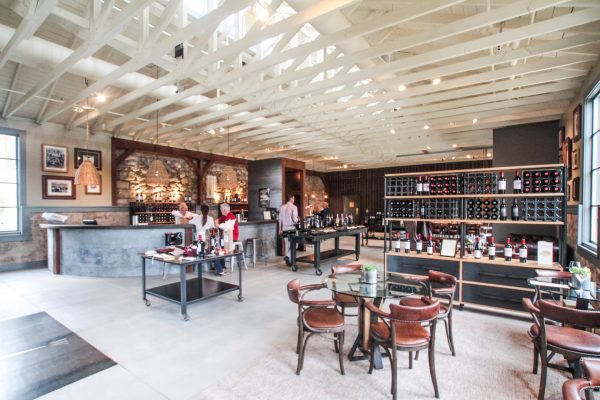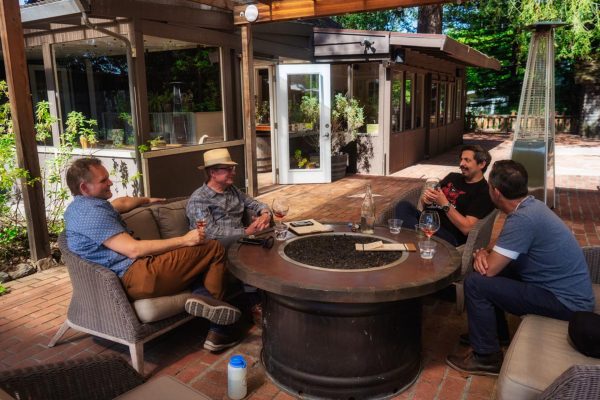
Issue #6 | February 2020
Innovations in Event Management
Newsletter from Milestone Events group
This Issue:
By The Numbers
Evolution of a Marketplace
Discover how the Wine Country event sector has changed over the years relating to permitted and non-permitted event venues
Top 5
Violations Made at Event Sites
5 simple ways to make sure you do not get in trouble from hosting events at your venue
Pro Tips
How to Increase your Event Site Fee
There are some simple things you can do that may allow you to charge top dollar, just for hosting an event
Success Stories
Option B
When you give your client a trusted cost estimate that includes lower cost wine, your close ratios can soar
By the numbers
1 of 4
Evolution of a Marketplace
Over the past decade, the options available to clients looking to book permitted event venues for their event have increased 400% in Sonoma County. At the same time, un-permitted sites have also proliferated. Our recent annual polling of vendors indicated that if non-permitted sites are included, the capacity increases by an estimated 50%.
Given a simple understanding of supply and demand, if supply has increased to this extent, and a gating factor exists (available, reasonably priced lodging), demand is certainly altered.
An indication that demand has been impacted is that sites that previously sold out in season (late April – early November), now find that their Friday and Sunday bookings have declined. This is a direct result of the increase in supply and the high value clients place on securing Saturday’s for their events. Since there are now “more Saturdays” available, Fridays and Sunday event dates are declining.
The second way demand has been altered is that those Friday and Sunday event dates must be priced more attractively (read: cheaper) to incentivise clients to move from the desired Saturday date to an alternative one.
The third effect is related to the vendor support community. It is not in a business’s best interest to have its volume squeezed into a narrow window, but that is what this evolution has caused. Staffing, which was hard, is now even more difficult as there is a smaller window where income can be made. This issue drives up the cost to the business and also constrains the natural limit of how much business they can do in this shortened window as a result of production space or labor limitations.
The fourth repercussion is that clients who continue to seek Saturday event dates will find they are paying a premium to do so. The supplier community will find it necessary to increase their prices or reduce possible discounts, to enable them to earn what they need to in this shortened time frame.
The fifth consequence of this situation is that any lost booking date is quite costly, as it is now harder and harder to even try to make up for lost weekends or key weekend dates. While discounting can have some effect, it only moves you from worse to bad. The key is to get ahead of the curve and get your bookings done as early in the season as possible. Nothing succeeds like success, and by being able to let later booking clients know you have few dates, or few permitted slots available, you will enhance your desirability and ability to maximize your capacity.
The average winery earns approximately $7,000 in profit per wedding. If you can do them, and you want to do them, you should make every effort not to leave that amount of money on the table or in your competitors’ pocket
2 of 4
Top 5 Violations Made at Event Sites
#1- Serving outside alcohol
Type 02 permits, which are the typical winery related permits, allow fermented spirits such as wine, beer, sake, soju, pisco, and brandy. Distilled spirits are not allowed, and clients need to understand that before booking a site so no confusion can put the winery’s permit at risk.
#2- Event End Times
Many permits clearly spell out when event are allowed to take place at permitted event venues. Be sure what you are selling is allowed as there are times evening events are not part of a core winery permit.
#3 Underage Drinking
Obvious, but one way to minimize this exposure is not to have wine bottles left at the table. Instead, those looking to be served that are not able to be adequately carded, don’t get served.
#4 Cannabis Usage on Winery Property
Cannabis is not allowed within a winery’s bonded location – that holds for bud bars, vape bars, and edibles.
#5- Exceeding number of permits
Guests just don’t come and go, and events don’t occur without creating some associated impact. If you have permitted event venues, adhere to your rules and make the best of what you have without putting at risk the entire ability to have events.
Top 5
Pro Tips
3 of 4
How to increase your event site fee
Want to ensure your permitted event venues are the best they can be, resulting in the most profitable outcome? There are some simple things you can do that may allow you to charge top dollar, just for hosting an event!
The first thing potential clients will notice when they step onto your property is how things look. Appearance is everything! Clear walkways of debris, pull any visible weeds, and banish those spiderwebs from the ceiling for good! A bride will not want to get married if there is a gopher hole in the center of her ceremony aisle, so be sure to walk your property with your eyes peeled for possible problems.
Another helpful tip is to have a variety of furniture included within the site fee. If potential clients see that you have tables and chairs for them to use, along with a slew of accent and lounge furniture, they will be more likely to move forward with booking. Point out that that is a significant saving for them, and factor that into the site fee cost. If you lack a useable kitchen, your client will need to rent this, which may make your venue out of their budget. Including such items will help you be able to increase your site fee.
Having knowledgeable staff, eager to help is another key to increasing your site fee. Events should be one of your main focus areas if you are to succeed in the industry, so having skilled and educated staff will help immensely. When potential clients are reaching out to your business, they will be captivated by the information presented on the initial calls, emails, and meetings, and will be more willing to drop a few extra bucks for your site.
If you put a little extra care and attention into your venue, you will ensure successful bookings at the rate you’d like to get.
4 of 4
Option B: Having an alternative for expensive wine
When couples determine what site to ultimately select for their wedding, there is almost always a financial component that is part of this decision. Regardless of the method or tools they use, couples have a working budget that factors into the equation for a variety of costs. Once they get further into the process, they begin to see significant cost drivers and then start to question if a particular site is right for them.
Any reception at a commercial location has a number of what could be considered “fixed costs.” These include the actual site fee, and for weddings at wineries, the cost of the wine. While clients can reasonably modify their spending as it relates to other aspects of the reception, the price of the wine is the price of the wine, less any possible wine club discount that may be offered.
A winery would, of course, prefer to sell its higher-priced wines, but it is not a horrible idea to have a couple of other resources available to help bridge the gap in some instances.
For example, one way to help couples find a solution to their budget restrictions is to offer a supply of “out of vintage” wines. The availability of these wines can help a client make the overall cost of the site work for them. Although discounted, a winery’s bottom line benefits as the pricing would still be above the friends and family pricing we see at certain times of the year for these kinds of wines.
Another way to help clients looking to save on wine is to offer a second label that is priced lower and can help the winery find a use for wine that otherwise might not have been marketed.
While both of these options may not be your Option A, they are solid Option B’s, which help you and the client to find common ground and a way to host their event at your location without having to resort to a discounting of your site fee.


Success Stories
About Milestone
milestone helps sites maximize event capacity for greater event-related revenue
Contact
“Engagement season” is a REAL THING
25% of the years event bookings occur in January & February
If you aren’t already close to capacity for the year, you may need some help.
Venue management newsletter
Share with your team
Enter the emails of any team members that you would like to be included in our Monthly Newsletter distribution.